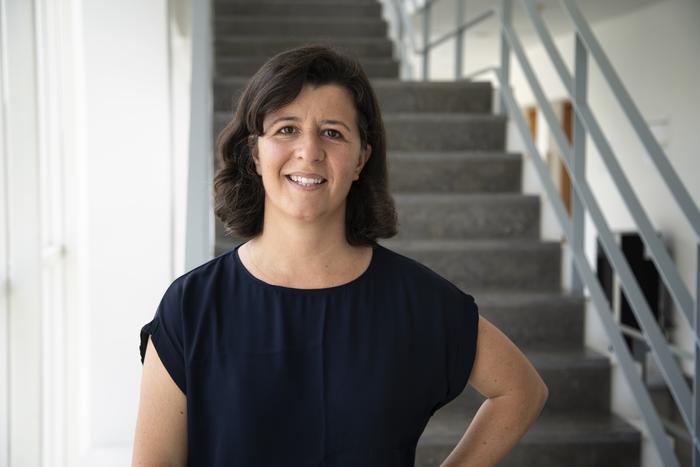The European Molecular Biology Organization (EMBO) has announced today that it will award the lifetime honor of EMBO Membership to Luísa Figueiredo, group leader at the Instituto de Medicina Molecular João Lobo Antunes (iMM, Lisbon, Portugal), in recognition of the excellence of her research and outstanding achievements in the life sciences. EMBO is an international organization of more than 2000 life scientists in Europe and around the world, committed to build a European research environment where scientists can achieve their best work. Aside from Luísa Figueiredo, 68 other EMBO Members have been elected this year.

Credit: Gonçalo Ribeiro, iMM
The European Molecular Biology Organization (EMBO) has announced today that it will award the lifetime honor of EMBO Membership to Luísa Figueiredo, group leader at the Instituto de Medicina Molecular João Lobo Antunes (iMM, Lisbon, Portugal), in recognition of the excellence of her research and outstanding achievements in the life sciences. EMBO is an international organization of more than 2000 life scientists in Europe and around the world, committed to build a European research environment where scientists can achieve their best work. Aside from Luísa Figueiredo, 68 other EMBO Members have been elected this year.
Luísa Figueiredo is originally from Porto, in Portugal. She did her graduate studies in the parasitology of malaria at the Institut Pasteur (Paris, France). It was during her postdoctoral training at the Rockefeller University (New York, USA) that she first encountered the parasite that remains her focus of research until today – Trypanosome brucei – a unicellular parasite that causes sleeping sickness in humans, and nagana in cattle, in Sub-Saharan Africa. She moved back to Portugal and established her own research lab at iMM in 2010, where she studies host-pathogen interactions. Her team focuses on the cellular and molecular mechanisms used by trypanosomes to adapt to the tissue environment and to evade the host immune defenses. Over the years, Luísa made groundbreaking contributions in parasitology, such as the preferential colonization of different tissues by trypanosomes, but also in the field of molecular biology, with discoveries on the importance of RNA modifications in the regulation of gene expression. Her discoveries can contribute to the development of new therapeutic strategies for sleeping sickness and nagana, that remain a public health concern and a major economic burden in Sub-Saharan Africa.
This is not the first time that EMBO recognized Luísa’s scientific contributions. In 2010, Luísa received an EMBO Installation Grant to establish her research lab at iMM. “I am deeply honored to be elected as an EMBO Member. EMBO was determinant in my career, through the EMBO Young Investigators program, by funding the setup of my own research lab, stimulating creativity, and facilitating management. It’s a privilege to be a part of this organization and to join this group of exceptional scientists who have been inspirations throughout my career. I look forward to continue to participate in the EMBO initiatives, to serve as a mentor to younger scientists, and to contribute to strengthen the scientific community in Europe”, says Luísa on the meaning of this recognition. Her scientific excellence has been also recognized by other renowned institutions, such as the European Research Council, and the “la Caixa” Foundation.
The tradition of EMBO of recognizing outstanding researchers dates back to 1963, when EMBO selected an initial group of 150 members that has been growing by annual elections since then. Now, Luísa Figueiredo joins the iMM principal investigators Maria do Carmo Fonseca, Maria Mota, and Bruno Silva Santos in this network. As a new EMBO Member, Luísa will have an active role in EMBO initiatives, such as participating on EMBO Council and committees, evaluating further applications, mentoring young scientists, or joining editorial boards of EMBO Press journals. Through these activities, EMBO Members help to strengthen the research communities in Europe and beyond, and shape the direction of research in the life sciences.




